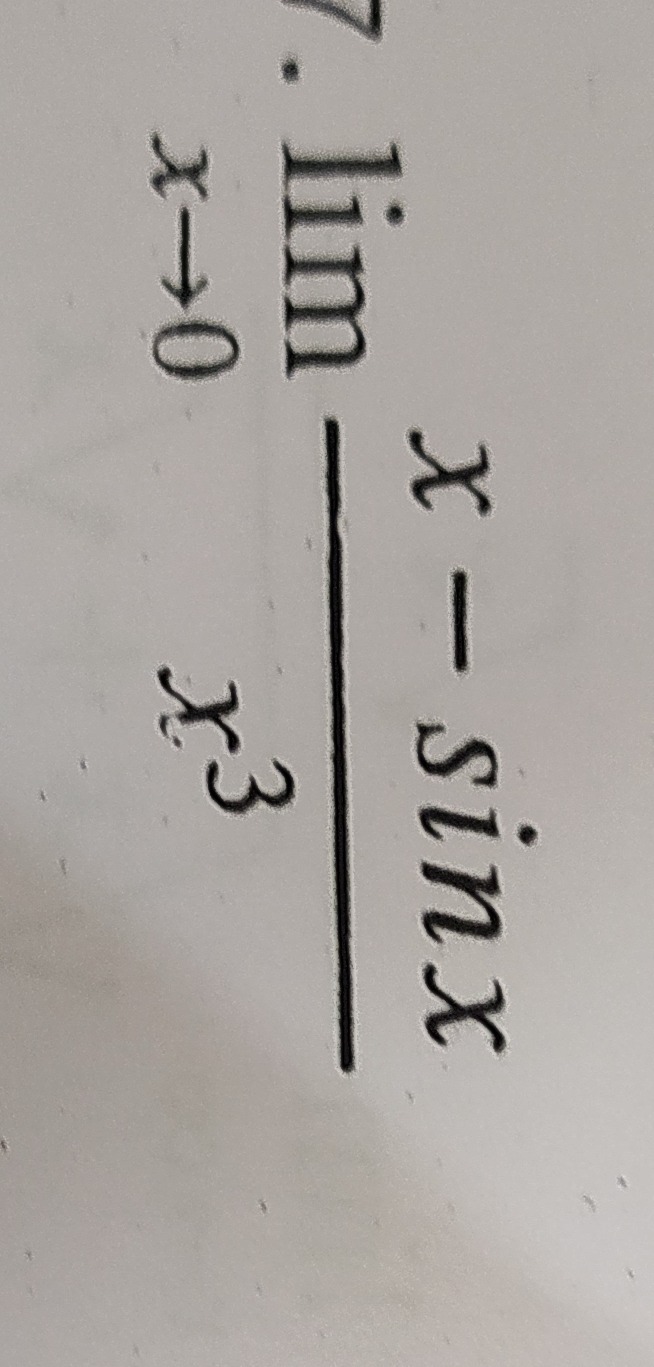Question
Question: $\lim_{x \to 0} \frac{x-sinx}{x^3}$...
limx→0x3x−sinx

Answer
1/6
Explanation
Solution
We are asked to evaluate the limit limx→0x3x−sinx.
As x→0, the numerator x−sinx→0−sin0=0.
As x→0, the denominator x3→03=0.
The limit is of the indeterminate form 00. We can use either L'Hôpital's Rule or Taylor series expansion.
Method 1: Using L'Hôpital's Rule
Applying L'Hôpital's Rule:
x→0limx3x−sinx=x→0limdxd(x3)dxd(x−sinx)=x→0lim3x21−cosxThis is still of the form 00. Applying L'Hôpital's Rule again:
=x→0limdxd(3x2)dxd(1−cosx)=x→0lim6x−(−sinx)=x→0lim6xsinxThis is still of the form 00. Applying L'Hôpital's Rule a third time:
=x→0limdxd(6x)dxd(sinx)=x→0lim6cosxNow, substitute x=0:
=6cos0=61Method 2: Using Taylor Series Expansion
The Taylor series expansion of sinx around x=0 (Maclaurin series) is:
sinx=x−3!x3+5!x5−7!x7+…Substitute this into the expression:
x3x−sinx=x3x−(x−3!x3+5!x5−…) =x3x−x+3!x3−5!x5+… =x36x3−120x5+…For x=0, we can divide the numerator by x3:
=61−120x2+5040x4−…Now, take the limit as x→0:
x→0lim(61−120x2+5040x4−…)=61−0+0−⋯=61Both methods give the same result.
